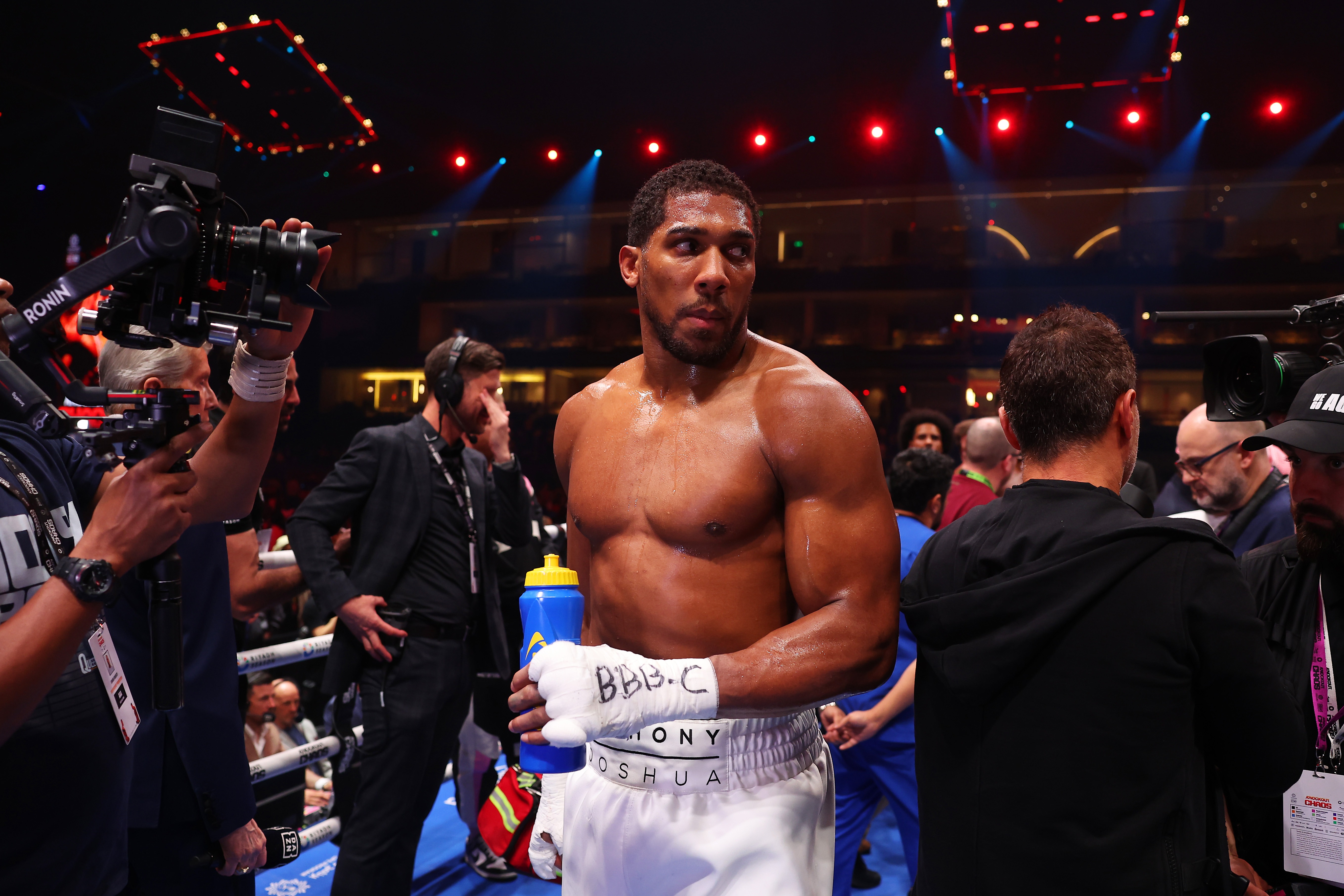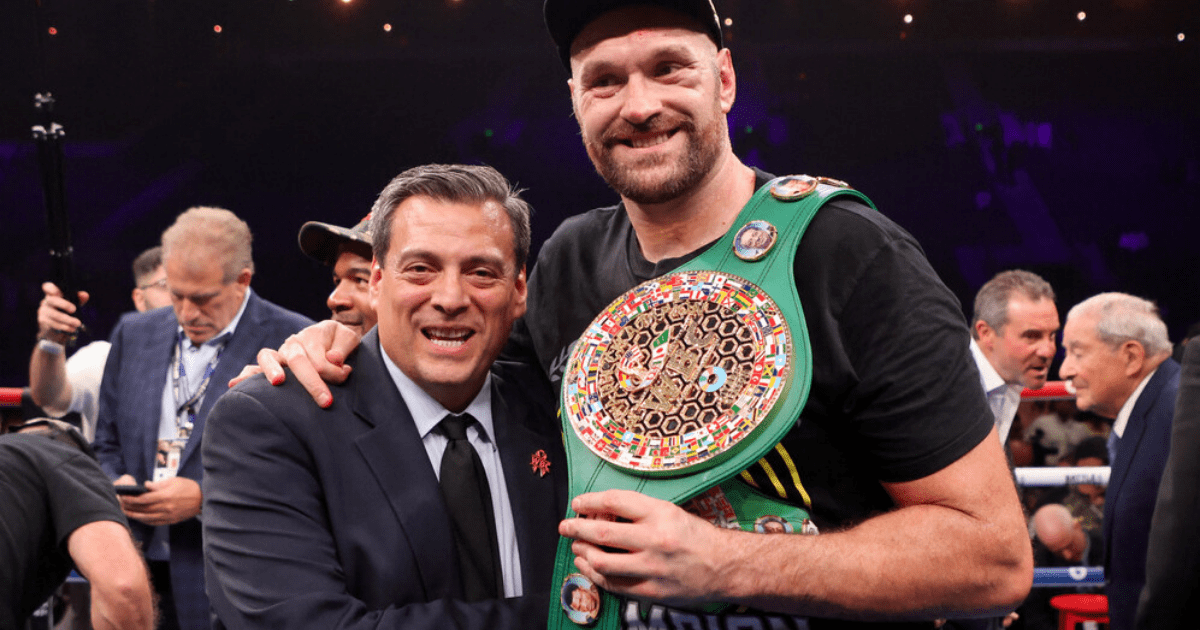Fresh Hope for Joshua-Fury Showdown
Anthony Joshua has been given fresh hope in landing a mega-fight with Tyson Fury as the WBC president, Mauricio Sulaiman, has given the green light for the all-Brit bout.
WBC Approval After Usyk Fight
Tyson Fury has the WBC's approval to face Anthony Joshua if he emerges victorious against Oleksandr Usyk in their upcoming bout.
Potential Roadblocks Cleared
Despite contractual obligations for a rematch with Usyk, the WBC is willing to support the highly anticipated matchup between Fury and Joshua.
Joshua's Impressive Win
Joshua's recent knockout victory over Francis Ngannou has sparked excitement for a potential showdown with Fury, who was in attendance to witness the bout.

Verbal Sparring Begins
Fury wasted no time in responding to Joshua's promoter's claim of him being the best heavyweight, citing Usyk's victories over Joshua as a counterargument.
The Showdown Fans Want to See
With both fighters eager to face each other, the stage is set for a Battle of Britain that boxing fans have been eagerly anticipating.
Frequently Asked Questions
What is the basic training program of a Boxer?
A boxer’s routine is made up of several main components. Technical skill development, strength and conditioning exercises, sparring and mental preparation are all part of a boxer’s training routine. Technique-focused workouts improve punch accuracy and defensive maneuvers, while tactical drills develop fight strategies. Sparring is a great way to gain practical experience. Conditioning exercises improve athleticism. Mental training emphasizes confidence, focus, and resilience.
What role do managers, promoters and agents play in a pro boxer’s career?
Promoters and managers are crucial to a professional boxer’s career. Managers are responsible for guiding the boxer’s career path, negotiating contracts, and handling the business affairs of the boxer. Also, they help select the right fights while looking out for the interests of the boxer. Promoters are more focused on marketing, event organization and attracting sponsorship attention. They also focus on enhancing a boxer’s profile.
What diet should a boxer who is a novice follow?
A novice should consume a diet with a balance of nutrients that supports intense workouts, and promotes recovery. It is usually recommended to consume carbohydrates for energy as well as lean proteins that promote muscle growth and repair. Healthy fats should also be consumed for good health. Vitamins and minerals are also essential. Consulting a sports dietician can help you create a tailored diet that fits your boxer’s goals and training routine.
Anyone can learn how to box professionally.
Even though boxing may be accessible to all, not everyone is cut out to compete professionally. Boxing is a sport that requires a special combination of physical strength, mental toughness, talent and dedication. The sport has inherent risks that potential boxers will have to be willing and able to take. A thorough evaluation by a trainer will help determine the potential of a person to have a successful career in boxing.
What are the requirements to train for professional boxing?
To begin training for professional boxing, one must possess a strong commitment to physical fitness, discipline, and a willingness to learn. The first step in training is to learn the basics, such as footwork, stance, punches and defensive techniques. It’s imperative to join a reputable boxing gym with experienced trainers who understand the nuances of professional competition. Novice boxers typically undergo a rigorous regimen of conditioning, technique drills, and sparring to develop their skills before considering competition.
How important is mental strength in professional boxing?
Mental toughness in professional boxing is as crucial as physical conditioning. The sport requires mental toughness, resilience, and the ability of handling pressure. Mental preparation involves visualization, stress management techniques, and developing a strong mindset to confront the challenges within the ring. Without mental toughness a boxer will struggle to perform under the high pressure conditions of professional competition.
What are the risks associated with professional boxing?
Professional boxing is a contact sport and as such, it carries risks. They include acute injuries, such as cuts and bruises, broken bone, head trauma, and potential chronic conditions caused by repeated impacts, such concussion syndromes, or neurological disorders. Proper training, safety equipment, and adherence to boxing regulations help mitigate risks, but they can never be fully eliminated. Boxing professionally requires you to accept and understand these risks.
Statistics
- Less than 10% of professional boxers are undefeated throughout their career, highlighting the sport’s competitive nature.
- Professional boxers typically train 4 to 6 hours per day, 5 to 6 days a week, depending on their fight schedule.
- Reports suggest that successful professional boxers can earn upwards of 50 times more than the median purse for entry-level professionals per fight.
- A study showed that most professional boxers have spent more than 4 years in training before their first professional bout.
- As per recent surveys, only about 17% of professional boxers reach a title shot opportunity in their careers.
- An analysis of boxing injuries suggests that 90% involve the head, neck, and face, emphasizing the importance of protective gear.
- Statistical data indicates that there has been a 15% increase in the number of professional boxing gyms over the last decade.
External Links
titleboxing.com
sweetsciencefitness.com
wbcboxing.com
expertboxing.com
boxingnews24.com
boxingnewsonline.net
usaboxing.org
How To
Learn how to master the different boxing punches
To be a professional in boxing, you must master different types of punches. Work on the fundamental punches such as the jab, cross, hook, and uppercut. Each punch requires different body mechanics. Concentrate on precision and technique rather than force. Use a heavybag to improve your power and timing, and a pace bag to improve your hand-eye coordination and timing. A shadowboxing session that focuses on punch precision is beneficial. Seeking feedback from your coach will help you progress.

